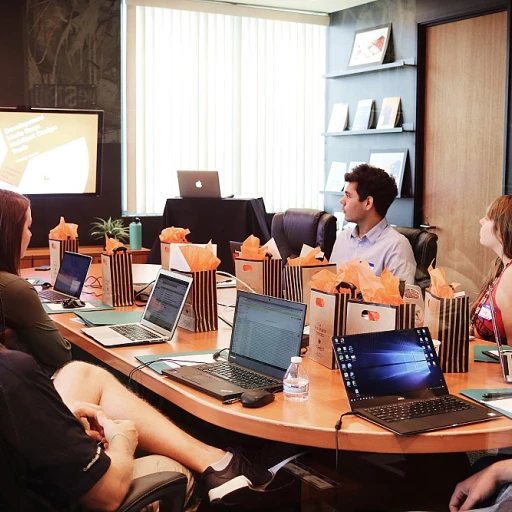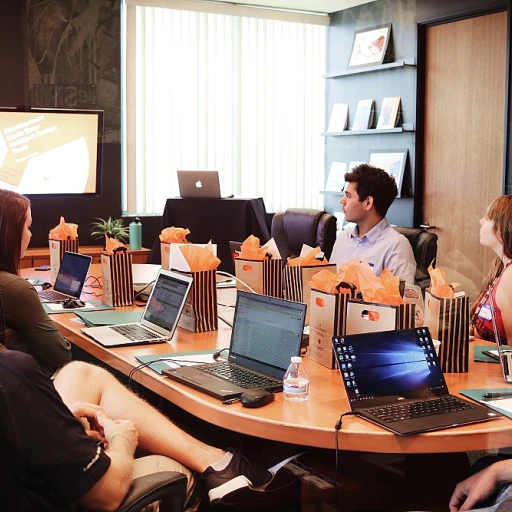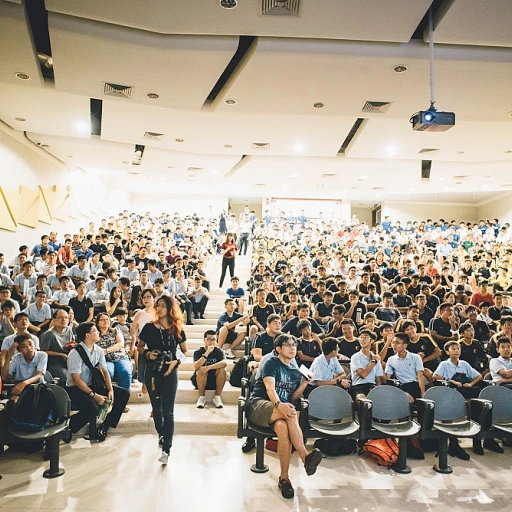
Understanding the Importance of Workplace Holidays
The Role of Holidays in Shaping Workplace Dynamics
Understanding the role of holidays in a workplace context is pivotal for fostering a productive environment while maintaining employee morale. In the United States, federal holidays like Independence Day, Veterans Day, and Christmas Day significantly impact both the operational and cultural landscape of organizations. Federal holidays are crucial, not only as a mark of national celebration but also as a built-in form of workforce appreciation. Regular holidays serve as milestones in the corporate calendar, offering employees an opportunity to recharge and reflect. These days can range from straightforward ones like Memorial Day and Labor Day, marking respect, and hard work, to more personal observances such as Martin Luther King Jr.'s Birthday and Thanksgiving Day. Recognizing these holidays goes beyond mere convenience; they embody the values and history that help unite a team. Acknowledging holidays throughout the year encourages a balanced work-life integration by providing employees time to spend with family and engage in personal interests. Furthermore, these breaks can improve mental health and boost productivity when employees return reenergized, promoting overall employee well-being. Crafting an appreciation for holidays at work can be complex, especially with a diverse set of team members each having unique cultural backgrounds and affiliations. However, identifying this importance helps guide the creation of inclusive holiday policies that respect varied beliefs and practices. Learn more about how enhancing the employee journey through thoughtful observance of holidays can contribute positively toward workplace culture, and for further insights check on enhancing the employee journey here.Balancing Workload and Festivities
Maintaining the Right Balance
Balancing workload and festivities during workplace holidays can be a challenging endeavor. As many employees look forward to these days for some much-needed breaks from their hectic work schedules, organizations also need to ensure that productivity doesn't take a steep dive.
Given the calendar of national holidays, including federal holidays such as Memorial Day, Labor Day, and Thanksgiving Day, companies must strategically plan around these times. For instance, when a holiday such as Independence Day or Christmas Day falls on a Monday or a Friday, employees might be tempted to take long weekend vacations, affecting overall workflow. However, by aligning team efforts, companies can maintain efficiency without sacrificing festivity.
Proactive Planning for Holiday Seasons
To strike an effective balance, integrating a proactive approach can be worthwhile. Here are some strategies:
- Assess Workload Early: By anticipating workload peaks and troughs, businesses can plan tasks in advance of busy holiday months.
- Flexible Schedules: Implementing flexible work schedules or remote work days can help accommodate employees who might have travel plans or family commitments.
- Team Collaboration: Encouraging team members to collaborate can distribute tasks evenly, ensuring everyone contributes without a few individuals shouldering the holiday burden.
- Holiday Work Plans: Create specific holiday work plans delineating critical tasks that need attention, thus avoiding any last-minute rush.
Creating a Culture of Appreciation
Beyond balancing workload, recognizing and celebrating the contributions of your team is essential. An appreciation day or other employee recognition events can go a long way in maintaining morale and reinforcing a positive workplace culture.
Ultimately, balancing festivities with work days doesn't mean sacrificing either. With careful planning and understanding, companies can celebrate their diversity while ensuring that productivity levels remain high throughout the year.
Cultural Sensitivity and Inclusivity
Fostering an Inclusive Festive Environment
Understanding the diversity of the team plays a crucial role during workplace holidays. It's essential to acknowledge that not all employees celebrate the same holidays or follow the same traditions. Inclusivity requires sensitivity to cultural and religious diversity, which, when respected, enhances the overall health of the team.- Recognizing Various Holidays: While federal holidays like Independence Day, Martin Luther King Day, and Veterans Day are commonly observed in the United States, it's beneficial to be aware of cultural holidays your team members may observe. For example, Christmas Day is significant for many, yet others might celebrate Diwali, Eid, or the Lunar New Year.
- Customizing Celebrations: Offering employees the day off on their significant personal holidays can foster appreciation and inclusion. This could mean allowing a floating holiday policy where employees can choose a special day important to their culture to take off, beyond the typical national holidays like Labor Day or Memorial Day.
- Avoiding Assumptions: Not every employee may look forward to every holiday. For example, while Thanksgiving Day is a time for gratitude, it may carry different connotations for different cultures or individuals. It's important to communicate openly and listen to the preferences of team members.
- Communication is Key: Encourage discussions about holidays and cultural practices within the team. This not only strengthens relationships but also serves to educate others about diverse traditions, promoting an inclusive workplace atmosphere.
The Impact of Holidays on Employee Well-being
The Ripple Effect of Holidays on Employee Health and Productivity
The annual cycle of holidays presents both opportunities and challenges for maintaining employee well-being. These days of celebration, from Independence Day to Veterans Day, often come with a mix of excitement and stress. How can organizations ensure that periods like Memorial Day and Labor Day don't disrupt mental health but rather support it?
First and foremost, it's essential to recognize that each holiday offers a chance for appreciation and relaxation. By allowing employees a day of respite, companies foster an environment where individuals return to work feeling refreshed and energized. It's not just about granting paid time off on Christmas Day or Thanksgiving Day; it's about creating a culture where mental health is prioritized year-round.
Federal holidays, such as Martin Luther King Jr. Day and Inauguration Day, give the entire team a break and encourage unity across the workforce. However, balancing productivity with festivity requires more than just checking boxes. It involves intentional planning and communication to ensure that work commitments and holiday schedules are harmonious.
- Flexibility: Allowing team members to choose how they spend their time off, whether it's on a specific federal holiday or another day, acknowledges diverse cultural and personal preferences.
- Health Initiatives: Encouraging activities that promote wellness, from yoga sessions to team-building exercises, can enhance overall health and morale during holiday months.
- Open Communication: Establishing clear channels for discussing workload distribution around key holidays, such as a long weekend from Friday to Monday, prevents stress and fosters collaboration.
Implementing thoughtful holiday policies isn't just about providing days off—it's about promoting a healthy work environment. With strategic planning and employee input, holidays can enhance, rather than hinder, workplace efficiency and well-being.
Holiday Policies and Best Practices
Establishing Clear Holiday Guidelines
Creating well-defined holiday policies is essential for fostering a supportive work environment, particularly during times when employees are juggling workload and festivities. These guidelines not only help to streamline processes but also enhance productivity and engagement. Clearly articulated holiday policies should address several aspects:- Federal and Non-federal Holidays: Establishing which federal holidays like Martin Luther King Day, Veterans Day, and Thanksgiving Day are recognized, as well as any non-federal holidays your organization chooses to celebrate.
- Time Off Requests: Implement a fair process for managing holiday time-off requests. Consider prioritizing requests around significant holidays such as Christmas Day and Independence Day to balance team needs and personal lives.
- Work Schedule Adjustments: Define policies for scheduling adjustments, like flexible work days on Mondays following a national holiday or allowing a half-day on the Friday before a long weekend.
- Inclusivity and Diversity: It's important to include a range of holidays reflecting the diverse backgrounds of your team members, promoting cultural sensitivity. All staff, regardless of their background, should feel included and appreciated.
- Communication: Ensure all employees are aware of these policies early in the year, perhaps by including a reminder each January. Regular communication maintains clarity and ensures there are no last-minute confusions regarding holiday arrangements.
Case Studies: Successful Holiday Practices
Real-World Examples of Effective Holiday Practices
In the corporate world, successfully navigating workplace holidays requires a thoughtful approach that balances festivity with productivity. Here are some real-world examples of companies that have excelled in this area:
Flexible Scheduling and Remote Work
Some companies have adopted flexible scheduling and remote work options around holidays like Thanksgiving Day and Christmas Day. By allowing employees to work from home or adjust their hours, these organizations help maintain productivity while respecting personal time. This approach is particularly effective during the busy holiday season, when balancing work and personal commitments can be challenging.
Cultural Sensitivity and Inclusivity
Organizations that prioritize cultural sensitivity and inclusivity often see higher employee satisfaction. For instance, recognizing holidays such as Martin Luther King Jr. Day and Veterans Day can foster a sense of belonging among team members. Companies that offer floating holidays allow employees to celebrate days that are personally significant, promoting a more inclusive workplace culture.
Employee Appreciation Initiatives
Some businesses use holidays as an opportunity to show appreciation for their employees. Initiatives such as Employee Appreciation Day or end-of-year celebrations can boost morale and strengthen team bonds. These events often include activities that promote mental health and well-being, aligning with the broader goal of enhancing employee satisfaction.
Structured Holiday Policies
Having clear and structured holiday policies is crucial for maintaining consistency and fairness. Companies that clearly outline their holiday schedules, including federal holidays like Labor Day and Memorial Day, help set expectations for employees. This transparency aids in planning and reduces potential conflicts, ensuring a smooth workflow throughout the year.
By learning from these examples, organizations can develop holiday practices that not only respect diverse cultural backgrounds but also enhance overall productivity and employee well-being.













